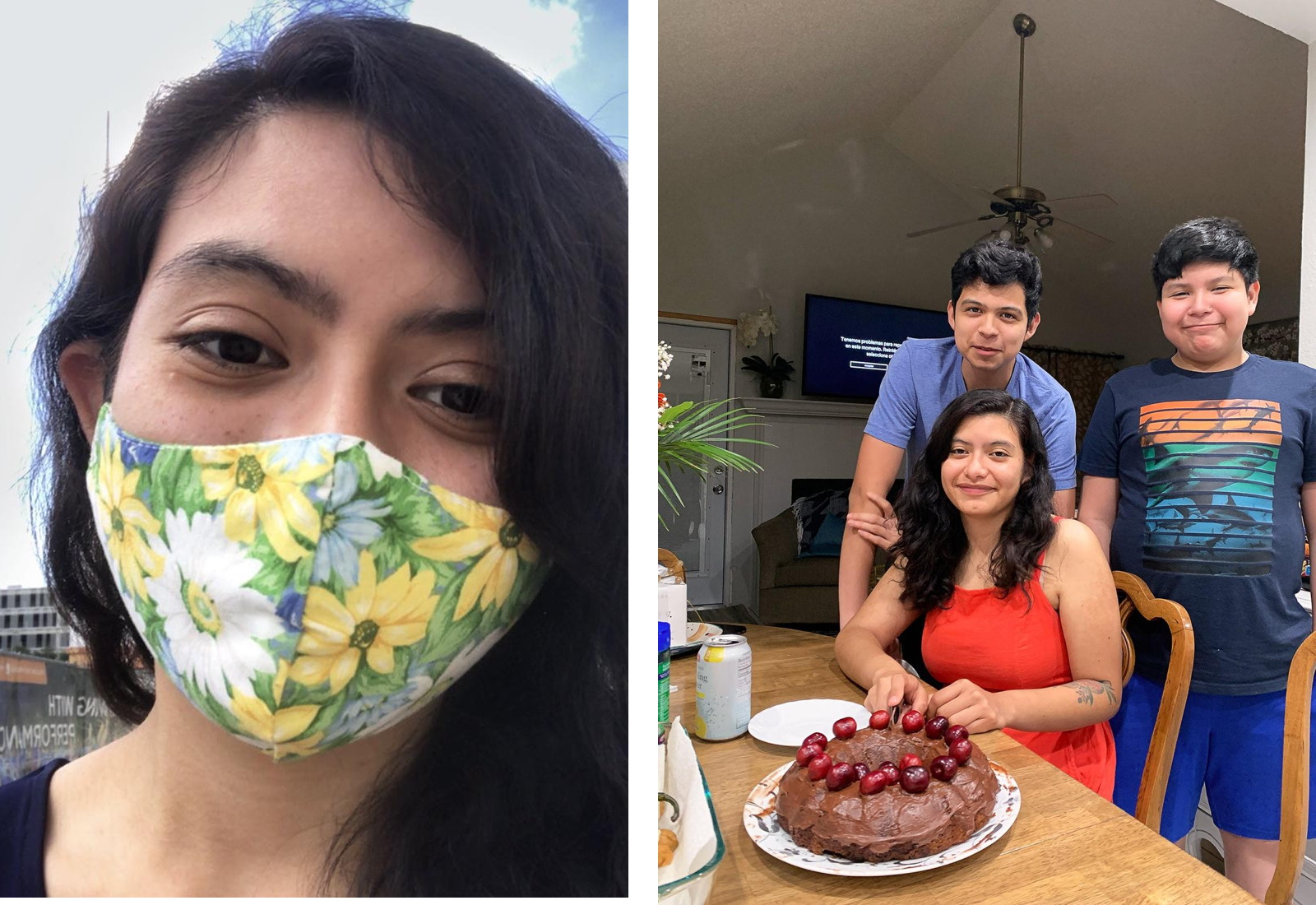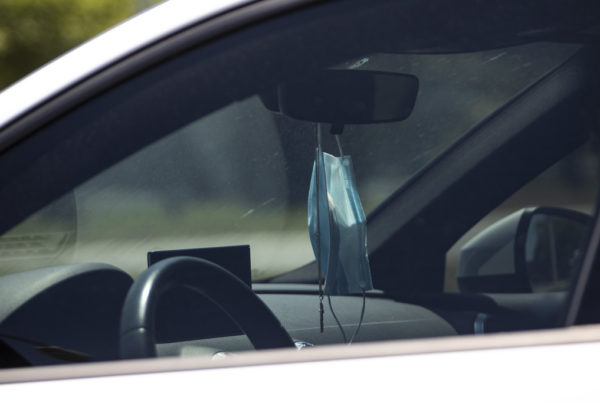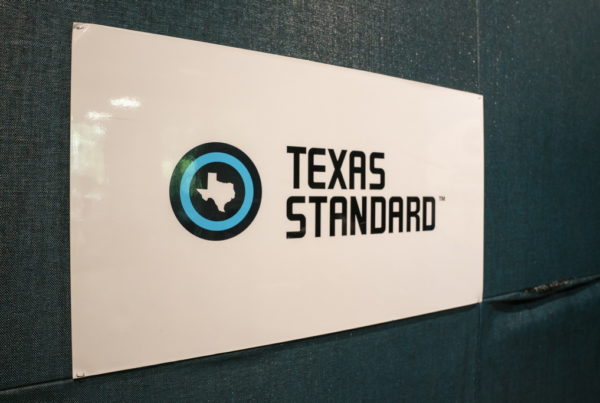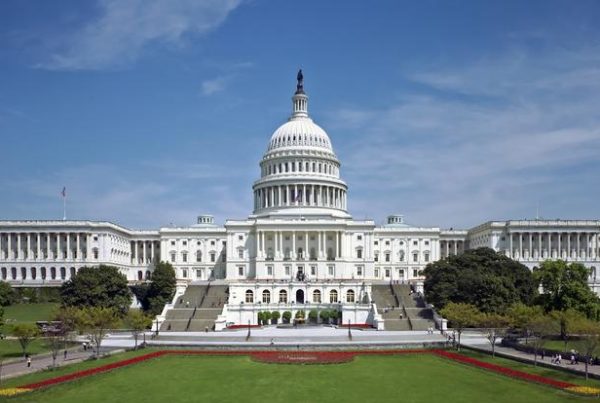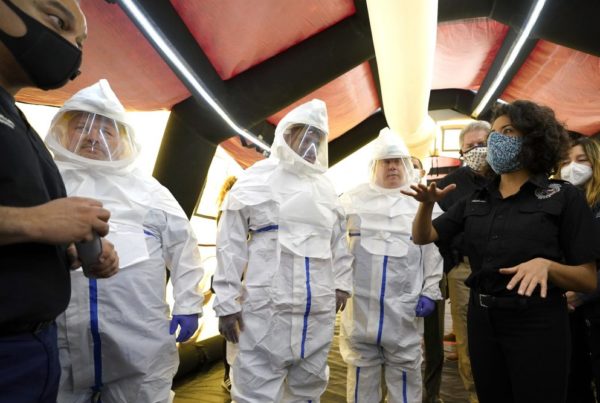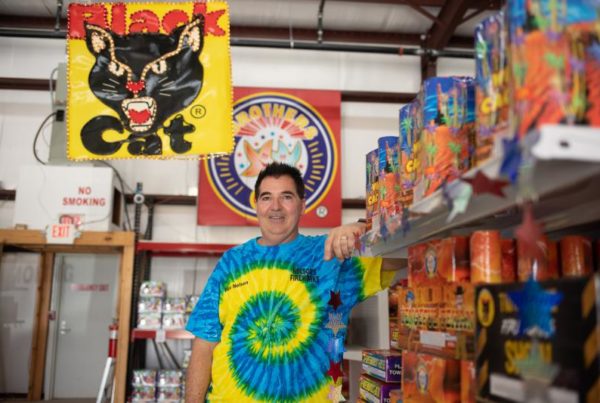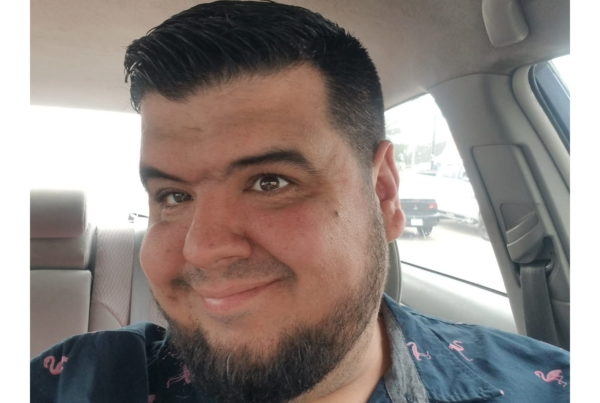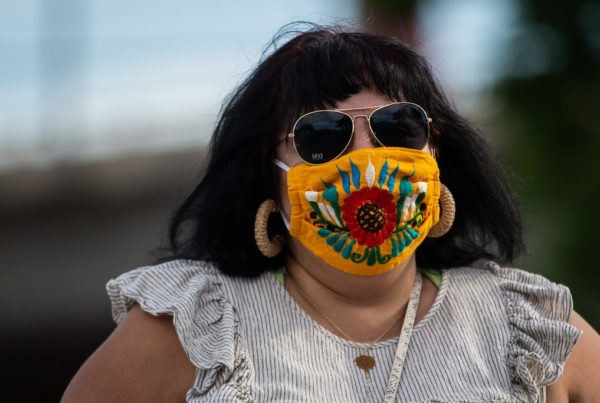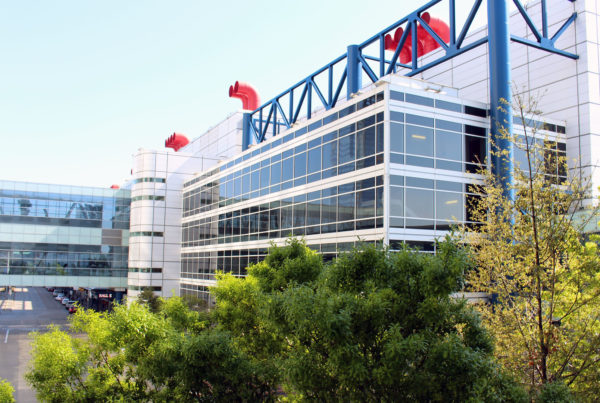From Texas Public Radio:
When I first read the email, I thought it was a mistake. “This is a reminder that you have been scheduled for you[r] Citizenship Oath,” it said.
For years, I had been dreaming of finally taking the oath to become a U.S. citizen, but I hadn’t received any kind of notice about the ceremony from the government since applying last December. The day before, May 25, I had moved from Austin to Laredo to start a new job with Texas Public Radio, so maybe I had missed something in the mail.
I stopped unpacking in my new Laredo apartment to call my mom and ask her if I had received anything from U.S. Citizenship and Immigration Services (USCIS) at our house in Austin.
Sure enough, there it was – my invitation to pledge allegiance to the United States in a few days at a ceremony in San Antonio. But in the middle of a pandemic?
It was late May, months after the coronavirus had shuttered much of the U.S. For immigrants seeking legal status or citizenship in the U.S., our destinies were put on hold. I was one of the lucky ones, close to the finish line of the long naturalization process.
In early March, as the pandemic began to overwhelm the country, I had passed my citizenship test and interview. The immigration officer who interviewed me in San Antonio warned me to not get into any trouble. You’re not a citizen until you take the oath.
The officer told me that I would still have to wait a month or two to do so among more than a hundred other migrants hoping to officially call the U.S. home. “You want to eat before you go, because these things last hours,” the officer said as he congratulated me. When he extended his hand to shake mine, I panicked, thinking of the NPR report I had just heard in which public health officials urged people to bump elbows. But I shook his hand anyway. It seemed like a minor risk compared with upsetting the officer who held my future in his hands. I then rushed to the bathroom to wash my hands.
Driving back to Austin from San Antonio, I wondered, “How are they going to change this process under new public health measures?” A week later I had my answer: USCIS would be halting its in-person operations, and I figured I wouldn’t be pledging allegiance or voting anytime soon. Surely the shutdown would only worsen the backlog of possibly millions of cases in the immigration system.
So when I got that email in late May it seemed too good to be true, and USCIS’s website still listed its offices as closed. But there was no way I was going to miss the ceremony, even if I was worried about putting my health at risk.
As an immigrant, you know the United States doesn’t wait for you. Instead, you wait for the United States—to closely scrutinize your life, to see value in you. It’s why the citizenship application asks you nearly a hundred questions: Have you ever been arrested, or involved in prostitution? Are you associated with a gang or communism? Have you been a “habitual drunkard”? And the feeling of being unwanted has become especially visible under an administration that has made it much, much harder to seek refuge or legally find work in the U.S.
The day after I got the email, I shared the news with a few of my friends, telling them I was anxious about attending the ceremony amid the pandemic.
“It’s seriously a test. HOW BAD DO YOU WANT TO BE AN AMERICAN???” one texted me back.
I remembered the many times I had longed for this moment.
Growing up undocumented, wondering what would happen to my family if we were ever caught in the wrong place at the wrong time by ICE. The many years I believed I wouldn’t be able to attend college because of my status. Or the time I thought I wouldn’t be able to return home because my green card had disappeared while I was studying in Mexico City—the first time I had seen my extended family since moving to the U.S. with my mother at the age of three.
Luckily, those fears never materialized for me and my family.
It turns out undocumented students can go to college, but it’s more expensive. I went to the University of Texas at Austin. And in my senior year of high school, I became a permanent resident, thanks to the Special Immigrant Juvenile program, a classification for immigrant minors who are abandoned by one or both of their parents. My mom also eventually gained legal status. And when you lose your green card abroad, you can get help from the U.S. embassy, though you have to pay hefty fines.
As I wasn’t a U.S. citizen yet, I still felt vulnerable. So a day before the ceremony, I headed back to my mom’s house in Austin to pick up the oath invitation required for the event.
When I went through the Border Patrol checkpoint about forty miles north of Laredo, the officer asked me if I was a citizen. “Almost,” I wanted to say, but I instead showed him my green card. He asked me to remove my face mask to verify my identity before letting me go through.
Once I got home, my family greeted me with flowers, chiles rellenos—my favorite Mexican meal—and lasagna, because my two U.S.-born siblings have a different palate.
As I read through the formal invitation from USCIS at the dinner table, the fear returned. The notice asked if anything had changed since my interview—whether I had gotten in trouble with the law, including traffic violations. I had just gotten my first speeding ticket earlier that week driving to Laredo.
My mom and friends assured me it would probably be fine. But I still felt uneasy. This country is the land of opportunity, but not everyone has equal access. So many people, even natural-born citizens, are denied opportunities or the right to live because of their skin color, gender, or sexuality. And their mistakes, no matter how small, have often been used to try to justify inequities.
So I carefully drove to San Antonio the next day hoping my mistake on the road wouldn’t cost me the opportunity.
At the USCIS field office, I nervously showed the immigration officer my ceremony notice and explained I had a pending ticket. He told me I just needed to pay for it before he could let me in. I could breathe again and I felt silly for crying the night before.
I then joined about a dozen other men and women, all covered in face masks, in a waiting room. Not the more than one hundred the officer had said I would encounter. Officers signaled for us to take a seat in the chairs not cordoned off by yellow caution tape. No family and friends were allowed inside, nor were we provided with tiny U.S. flags to wave around or greeted with a video from the president.
Standing six feet apart from one another, we simply raised our right hands as the immigration officer read the oath and asked us if we agreed. We all said “I do.” Often these ceremonies last more than an hour; ours totaled less than five minutes.
Outside, some of my fellow new citizens took pictures with their families.
I had asked my family not to come because of the coronavirus, so I instead took a quick selfie and let my family and friends know it had finally happened. The relief was dizzying.
But I also couldn’t help thinking about the hundreds of folks who had attended the same citizenship clinic in Austin the previous fall. Young and old. We just wanted to finally belong here. I wondered if they had made it through the complex immigration system, or survived the coronavirus unscathed.
I thought about the estimated 60,000 asylum seekers waiting in Mexico for a shot at legal entry into the U.S. And I thought about more than 600,000 Dreamers waiting for a decision from the U.S. Supreme Court about the future of the precarious DACA program. (Dreamers got welcome news last week.) I thought about all the people, regardless of legal status, who have lost so much during this pandemic.
At the dinner table with my family that night, my mom recounted how she had decided to bring me to the U.S. after leaving me in Mexico with my grandmother for a year to work here. “You always wanted to be a part of this country. I would call and you would pretend to speak English, but it was just gibberish,” she said, laughing.
The next day, I drove back to Laredo, where people often answer the phone in Spanish, to get back to work reporting on the complicated relationship between the country of my birth and the only country I had ever known.
María Méndez is a border and business reporter at Texas Public Radio, based in Laredo. She can be reached at Maria@tpr.org and on Twitter at @anxious_maria
This story was originally published in Texas Monthly.


